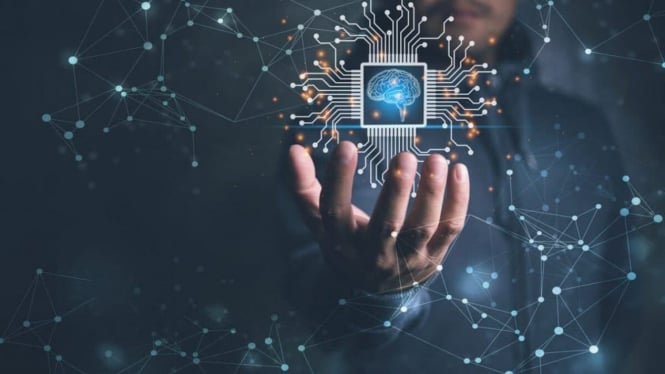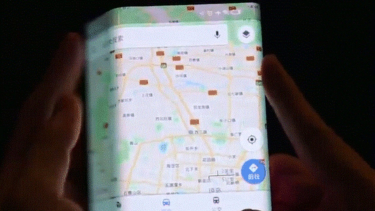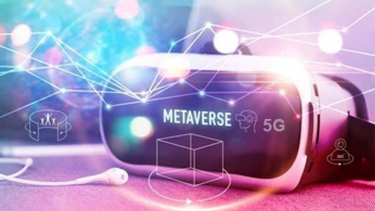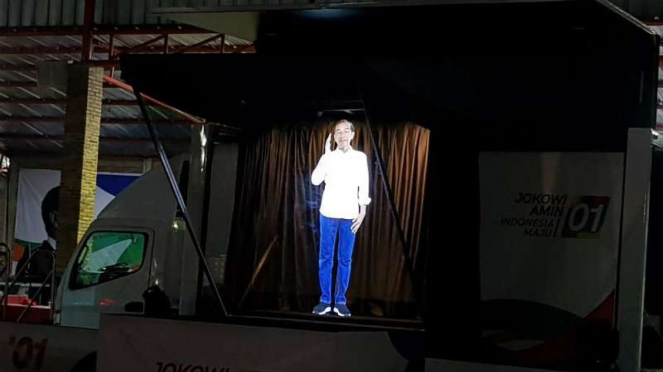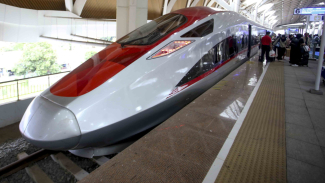Five Biggest Technology Forecasts for the Year Ahead
- Analytics Insight
VIVA – Technology has changed the world even more. As artificial intelligence (AI) and edge computing evolve, it brings power and efficiency to many industries and activities and has seen tremendous change.
But what are the big technologies that will happen in 2023?
Through Lenovo Indonesia's official statement on Tuesday, December 27, 2022, explored some of the emerging technologies that are expected to change the world even further in the future.
1. 'Holographic' technology
Hologram Jokowi.
- Eduward Ambarita/VIVA.co.id
In the hybrid working world nowadays, technology will improve by presenting meeting attendees in a 'holographic' format so that it is almost as real as being present in person.
For presentations, product launches, or meetings with other organizations, AR and mixed reality will offer new ways for organizations to make an impact, with life-sized 'holograms' that can interact with virtual objects or explore 'digital twins' of real-world objects.
"The Lenovo Cyber Space Technology Concept shows how a 'phygital' approach can work, with a special layer that is semi-transparent and semi-reflective, allowing people to physically interact with living objects," the Lenovo General Manager, Budi Janto stated.
2. A device with a changing shape
Bocoran ponsel lipat yang diduga Xiaomi
Lenovo's next-generation 16-inch ThinkPad X1 Fold refines the foldable PC category. The unit features a large screen size in the age of multitasking, a design designed for video recording and editing, content streaming, gaming, and other types of activities packed into a portable device.
In the future, phones will be much smaller but can be extended or stretched to be larger when we need to use them. This year, Lenovo and Motorola unveiled two pioneering devices that illustrate how future devices can transform whenever users want them to, and facilitate the needs of a hybrid world.
3. The metaverse changes the way to work
Adopsi teknologi 5G dan metaverse.
- ELE Times
In the future, the metaverse won't just be about cartoon avatars and games. Instead, the development of metaverse technology will be driven by the world of work. More than half of working adults in Singapore according to Lenovo's Metaverse and Hybrid Work Study believe their employers have the skills to enable work to be done in the metaverse.
Solutions such as the Lenovo ThinkReality VRX headset are coming to market to enable workers to collaborate in virtual reality (VR) and enable fast, cost-effective training programs.
4. Smart City powered with Multi-access edge computing (MEC)
Ilustrasi smart city.
- Taitra
In the future, smart cameras will help in managing congestion in 'smart cities' to reduce pollution and road accidents with edge computing servers enabling everything from holographic teaching to augmented reality shopping.
In the future, edge computing could even help cities achieve pollution targets by controlling traffic lights so that cars can drive more fuel-efficiently.
5. Hybrid work enables new technologies
Work from home (WFH).
- Pixabay
In Statista's 2022 survey of employees in Asia Pacific, 66 percent said they want a hybrid working arrangement in the future with only 11 percent preferring to work directly in the office.
This shift is already underway, with Lenovo's survey of 500 enterprises CTOs, finding that 43 percent of their enterprise technology architecture has been 'enhanced' and elements such as smart devices (76 percent) and smart inter (70 percent) have become increasingly important in the past year.
Businesses will move to an easier model where the entire office experience and related solutions and services can be provided by a third party.
Lenovo offers employees an experience where companies can rent a Workplace Solution, as opposed to just hardware and software, including IT infrastructure and work analytics support as cloud and data infrastructure services.
